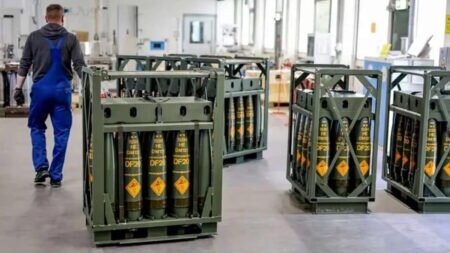Thales and Leonardo joint venture, Thales Alenia Space, said in a press release Tuesday that the company has reached an important milestone in the development of Galileo Second Generation, the Europe's civil global satellite navigation constellation, with the successful completion of the Satellite Critical Design Review (SCDR) Board.
The SCDR was recently held after verifying test and design progress, the company said.
“The final phase of the review got underway on March 18 in Rome with more than 120 participants present, including teams from Thales Alenia Space, the European Space Agency (ESA), the European Commission (EC) and the European Union Agency for the Space Programme (EUSPA), culminating in the final CDR Board held on the 17th of April at ESTEC premises, ESA’s technical centre in the Netherlands,” it read.
After the successful testing of two structural models approved for Ariane 62 launch, and the Engineering Model payload tests in both conducted and radiated setups, a comprehensive deck comprising approximately 1300 slides was compiled for review purposes. This significant achievement validates the resilience of the design and the technical prowess of the Galileo Second Generation satellite developed by Thales Alenia Space.
This milestone sets the stage for commencing the assembly and integration phase of the flight model in final quarter of this year. Additionally, the first Satellite Compatibility Test Campaigns with the Ground Segment are anticipated to occur by the end of 2024, aiming to guarantee complete satellite acceptance in the future years.
Galileo stands as the most accurate satellite navigation system globally, catering to nearly four billion users worldwide since its Open Service debut in 2017. Every smartphone sold within the European Single Market now ensures Galileo compatibility. Moreover, Galileo's impact spans across multiple sectors such as rail, maritime, agriculture, financial timing services, and rescue operations, contributing significantly to various industries.
Galileo represents a flagship initiative of the European Union, overseen and financially supported by the European Commission. From the program's outset, the European Space Agency (ESA) has taken the helm in designing, developing, and qualifying both the space and ground systems, while also handling launch procurement. Serving as the service provider for Galileo, the EU Agency for the Space Programme (EUSPA) is responsible for aligning with market demands and application requirements, ensuring seamless integration with user needs.
Thales Alenia Space played a pivotal role in all stages of the initial Galileo system's development, overseeing system support, the Galileo Mission Segment, and the Galileo Security Facility. In 2021, the company was chosen by ESA, representing the European Commission, to construct six out of the 12 new satellites for the Galileo Second Generation independent constellation. By July 2023, contracts were inked with ESA and the Commission to design and construct the mission ground segment for the Galileo Second Generation, alongside offering technical assistance for systems engineering in collaboration with the European partners.









